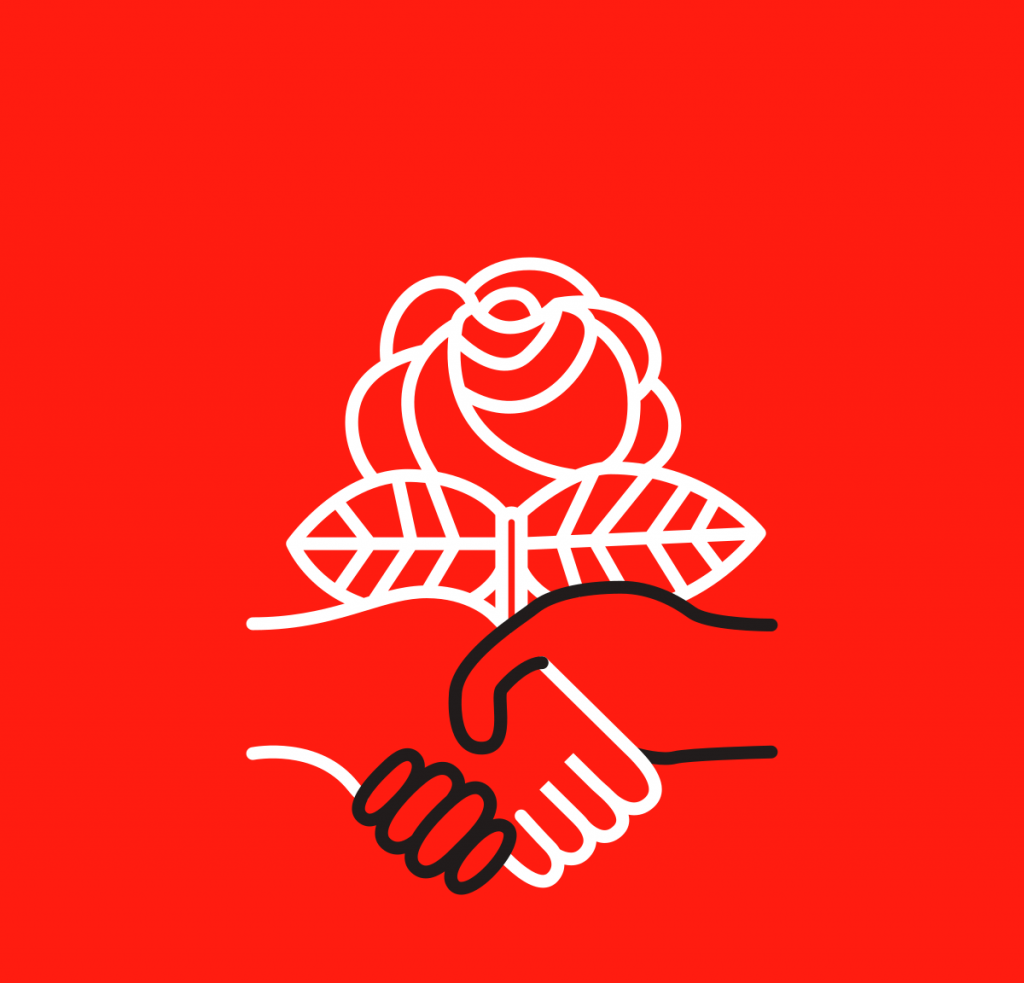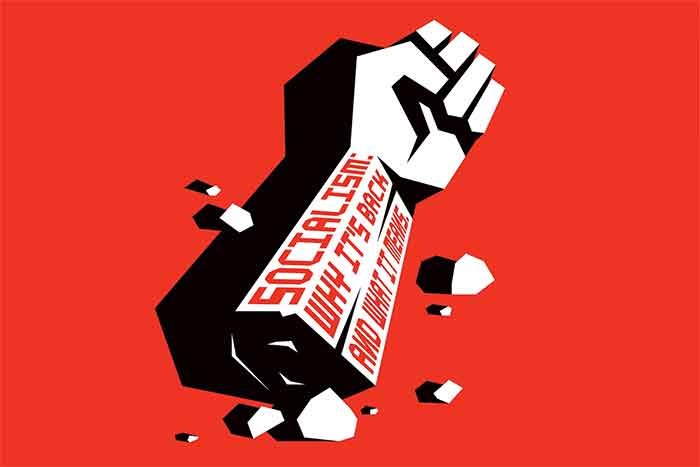
Look back at the history of Africa. That is where the need for socialism comes from. One of the recommended readings on Pan-Africanism in the Kenya Political Study Guide records not only the enslavement, the massacres, the stolen resources and stolen livelihood of future generations by Euro-American capitalism and imperialism, it also examines another weapon used by imperialism to perpetuate its rule in Africa:
The solution they came up with was to conquer African minds, young and old, this and future generations, in Africa or in the Americas. Only then could they rule in perpetuity. Only then could they claim moral superiority over the descendants of those they enslaved and those whose land, resources and labour they claimed as ‘our colonies’, ours to do with them as we please. And that right to property justified all the atrocities they committed, as if anything could justify treating human beings worse than animals.
This weapon has been so successful that hundreds of years after imperialism first set foot in Africa, it has created a capitalist ruling class totally under the control of imperialism. Of course, this was supplemented with other weapons: the consolidation of their ideology —capitalism; a ruling class given power over people; armed forces controlled by imperialism; financial institutions controlling economies and finance; imperialist corporations controlling African production from land, industries and services, labour exploitation, land grab… Africa, in time, became ‘independent’, but its destiny was controlled by capitalism and imperialism.
QUOTES:
They talk about the failure of socialism. Where is the success of capitalism? —Fidel Castro.
We have to talk about liberating minds as well as liberationg society — Angela Davis
African working people have always resisted capitalism and imperialism and their class exploitation and social oppression. But the weapon used by its enemies — the conquest of minds — disarmed African minds from knowledge about their history of resistance, their organisational experience and awareness of socialism. Capitalism kept working people busy looking for sustenance. It is not that people have not created institutions to liberate minds and instil socialist ideas. One of the most important developments in Kenya was the setting up of the Lumumba Institute by Pio Gama Pinto and others. This was an important attempt to liberate minds from capitalist thought and needs to be studied, both for its successes and eventual closure. The following selection is taken from a new book where references and further information are available:
The Lumumba Institute — Extracts from Two Paths Ahead
Activists at the time of independence saw the danger that capitalism posed and began to articulate socialist ideas and wrote documents to challenge the capitalist ones coming from colonialism and imperialism. As it became clear after independence that imperialism had managed to divert the aims of the liberation struggle and had handpicked leaders who favoured capitalism, they began to promote socialism with more vigour. On the one hand, they challenged Kenyatta’s version of capitalism disguised under the title of ‘African socialism’ by planning to introduce a socialist alternative in Parliament. They also realised that decades of capitalist norm in the country had resulted in people not being aware of socialist ideas and practices. This was particularly required in KANU and in the government as without socialist consciousness, without awareness of classes and class struggles, they would not be able to implement socialism and challenge capitalism. Thus, was born the idea of setting up an ideological institute for training party cadres and government officials in socialist ideas, methods and practices. (p. 97).
_____
Ogula (1977: 104) sees the establishment of the Lumumba Institute in the context of the ideological struggle within KANU:
In order to strengthen the party, the radicals launched the Lumumba Institute in 1965. One of its objectives was to ‘define, teach and popularise African Socialism in the context of universally accepted principles and practice of socialism’. The establishment of the Lumumba Institute was a calculated move to undermine the influence of the conservatives in Kanu by inculcating socialist ideas in the rank-and-file party functionaries, activists from among the workers and peasants, trade unionists, civil servants and co-operative workers.
_____
Ogula (1977: 105) quotes Morris Kala, a lecturer at the Institute on one of the aims of the institute:
“We at Lumumba Institute had high hopes of educating Kanu officials to wage a battle against capitalism in the country. But there were people who viewed the Institute as a threat to their positions and did everything in their power to undermine it. (p.99).
_____
An examination of the outline of Course at Lumumba Institute gives an indication of what the Institution aimed to do. No such anbitious attempts to liberate minds from capitalism have been made since:
Part I: Introductory course on the history of society, with particular reference to Africa.
Part II: Theoretical course:
- Elements of political economy
- Elements of philosophy
- General principles of socialism
- Elements of state and law.
Part III: Applied course:
- Biography of Jomo Kenyatta,
- History of political organisation in Kenya climaxing in the victorious KANU under Jomo Kenyatta’s leadership,
- African road to socialism
- Problems of building socialism in Kenya
- Elements of the organisation and economics of the national economy
- Elements of the organisation and economics of cooperatives and external relations and forces. (p.100, taken from Kaggia, de Leeuw and M. Kaggia (2012: 197). pp. 103-104 in TPA.
_____
But hidden from view are the hands of the USA and Britain, which had been setting the path of capitalism even before independence. The closure of the Lumumba Institute, as every progressive endeavour in Kenya, was guided by the USA, as Kimena (1970: 22-23) notes:
In 1964 anti-socialist elements in the cabinet of Kenyatta, backed and advised by the CIA intelligence services, had, in a most dramatic manner, worked for the closedown of Lumumba Institute which was established by KANU militants to train party cadres. 27 district party officials who demanded a change to radical policies were arrested, hurriedly tried in court, and sentenced to imprisonment ranging up to a maximum of one and a half years. Expulsion of socialist journalists and diplomats became a routine matter in Kenya.
____
And not only was the Institute closed by the Kenyatta government. One of the reasons for the assassination of Pio Gama Pinto, the inspiration behind its establishment, was his involvement in establishing the Lumumba Institute. The Lumumba Institute has demonstrated the need for such political and ideological schools to confront capitalist ideology, which is freely disseminated through all the official and unofficial channels of learning, education and the mass media — all controlled by adherents of capitalism.
The imperialist mission in Africa was not satisfied with the murder of Patrice Lumumba. By the end of 1965, imperialism had removed from the scene two powerful forces for socialism in Kenya: Pio Gama Pinto was assassinated, and the Lumumba Institute was closed. This goes to show that capitalism and imperialism will not tolerate any activity which liberates people’s minds and instils socialist ideology.
So, the question is, is it possible to create study courses to liberate minds from capitalist prison? A time is likely to come when any such attempts will be banned and those involved in it are imprisoned or worse, perhaps when they become a threat to the ruling class and imperialism. This is even more likely as the current Kenya government gets controlled even more firmly by USA imperialism and rightwing US Christian groups.
But new technologies make reading socialist material easier today. Unlike the experience of the December Twelve Movement, which had to struggle to acquire study material and build up its own library, information technologies now provides easy access to progressive and socialist material.
Standing on the Shoulders of Giants
Working people in Kenya and in Africa need to liberate themsleves from the chains of capitalism they have been locked in by forces of capitalism and imperialism. The need to liberate their minds and to see that the possibilities offered by socialism for a better life are the start of this process. Africa has been taught capitalism for centuries. It is time now to study socialism — and to take the socialist path to the liberation of people and countries. There is no other way for the future of working people in Kenya and Africa. Don’t ask why we should study socialism. Ask why we should continue to be subjugated to capitalist ideas, values, studies and lifestyles.
The future is Socialism. Yajayo ni Ujamaa. ભવિષ્ય સમાજવાદ છે
Shiraz Durrani is a Kenyan political exile living in London. He has worked at the University of Nairobi as well as various public libraries in Britain where he also lectured at the London Metropolitan University. Shiraz has written many articles and addressed conferences on aspects of Kenyan history and on politics of information in the context of colonialism and imperialism. His books include Kenya’s War of Independence: Mau Mau and its Legacy of Resistance to Colonialism and Imperialism, 1948-1990 (2018, Vita Books). He has also edited Makhan Singh – A Revolutionary Kenyan Trade Unionist (2017, Vita Books) and Pio Gama Pinto: Kenya’s Unsung Martyr,1927 – 1965 (2018, Vita Books). He is a co-editor of The Kenya Socialist. and edited Essays on Pan-Africanism (2022, Vita Books, Nairobi). His latest book (2023) is Two Paths Ahead: The Ideological Struggle between Capitalism and Socialism in Kenya, 1960-1990. Some of his articles are available at https://durranishiraz.academia.edu/research and books at: https://www.africanbookscollective.com/search-results?form.keywords=Shiraz+Durrani















































